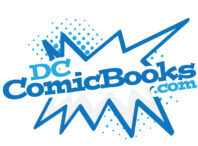from the to-public-domain-or-not dept
I don’t think I’ve ever had a story sent in to me more than Bill Willingham’s Substack/press release announcing that he was putting the Fables comic book property into the public domain, as part of a dispute he’s having with DC Comics.
As of now, 15 September 2023, the comic book property called Fables, including all related Fables spin-offs and characters, is now in the public domain. What was once wholly owned by Bill Willingham is now owned by everyone, for all time. It’s done, and as most experts will tell you, once done it cannot be undone. Take-backs are neither contemplated nor possible.
If you know Techdirt, you know that we’ve always encouraged people to put works into the public domain (and to use the public domain). Every year we run a public domain game jam. We’ve long noted that anything of our own that we publish on Techdirt should be considered in the public domain, and you are free to do with it what you will. The reports we’ve published are generally in the public domain as well. When I published two short sci-fi stories in our larger collection of sci-fi stories about the future of work, I put them into the public domain as well (a few other stories in that collection are also public domain).
Willingham’s reasons for doing so are a bit more complex than ours, but he admits that he’s become disillusioned by our copyright and trademark laws recently, recognizing (as we’ve long pointed out), that they seem mostly designed to empower gatekeepers in ways that harm the creators themselves, rather than help them. From that he even has his own idea on how copyright should be reformed:
In the past decade or so, my thoughts on how to reform the trademark and copyright laws in this country (and others, I suppose) have undergone something of a radical transformation. The current laws are a mishmash of unethical backroom deals to keep trademarks and copyrights in the hands of large corporations, who can largely afford to buy the outcomes they want.
In my template for radical reform of those laws I would like it if any IP is owned by its original creator for up to twenty years from the point of first publication, and then goes into the public domain for any and all to use. However, at any time before that twenty year span bleeds out, you the IP owner can sell it to another person or corporate entity, who can have exclusive use of it for up to a maximum of ten years. That’s it. Then it cannot be resold. It goes into the public domain. So then, at the most, any intellectual property can be kept for exclusive use for up to about thirty years, and no longer, without exception.
And thus, he decided to practice what he’s preaching:
Of course, if I’m going to believe such radical ideas, what kind of hypocrite would I be if I didn’t practice them? Fables has been my baby for about twenty years now. It’s time to let it go. This is my first test of this process. If it works, and I see no legal reason why it won’t, look for other properties to follow in the future. Since DC, or any other corporate entity, doesn’t actually own the property, they don’t get a say in this decision.
There’s also the… being mad at DC thing. He notes that when he originally signed his deal with DC, the company was good to work with, and whenever any problems arose, they were able to work things out. However, as Willingham puts it DC has “fallen into bad hands.” It seems that a part of that is Warner Bros. Discovery, which now owns DC. There have long been concerns that Warner Bros. Discovery is basically destroying what’s left of DC (while trying to wring extra cash out of it).
Elsewhere, Willingham noted that he had turned in scripts for Fables two years ago, and DC has basically dropped the ball on the property, so he’s freeing it for everyone else to use.
And… here’s where it gets complicated. Lots of people asked if he can actually do that, and the likely answer is that… we really don’t know. It may depend very much on the specific contracts Willingham has with DC Comics. It is possible that he signed a contract in which he retains the copyrights and trademarks. He certainly claims as much in his announcement:
The one thing in our contract the DC lawyers can’t contest, or reinterpret to their own benefit, is that I am the sole owner of the intellectual property. I can sell it or give it away to whomever I want.
A few people have pointed to the notice on Fables indicating the copyright is jointly owned by both and that the trademark is owned by Willingham:
But… if you go digging into the copyright registration database… well… it’s messy. There are a bunch of registrations for Fables, though as I flip through them, many suggest that he assigned the copyright to DC. If that’s true, then… he doesn’t actually have the copyrights to free and his claim that he’s the sole owner of the IP is incorrect.
However, other registrations do list them as co-owners of the copyright, including what I believe is the original copyright registration for the original Fables series:
And… if that’s the case, then there’s potentially more legitimacy to Willingham’s decision. When there’s a jointly created work with multiple authors holding the copyright, each author is able to license out the work to others without gaining permission from the other authors. They just need to let the co-copyright owners know about it.
So… this is… messy. DC, for it’s part, says no fucking way does Willingham have the right to do this:
The Fables comic books and graphic novels published by DC, and the storylines, characters, and elements therein, are owned by DC and protected under the copyright laws of the United States and throughout the world in accordance with applicable law and are not in the public domain. DC reserves all rights and will take such action as DC deems necessary or appropriate to protect its intellectual property rights.
Which means, we’re likely to see some sort of legal fight. Well, that is if anyone actually takes Willingham up on the offer. Because of DC’s posturing here, it will likely scare off some from going forward with things.
Willingham notes that he told DC that he was going to do this, and also tried to get them to write clearer contracts (which suggests that the existing contracts are about as messy as many such contracts tend to be):
I gave them an opportunity to renegotiate the contracts from the ground up, putting everything in unambiguous language, and they ignored that offer. I gave them the opportunity, twice, to simply tear up our contracts, and we each go our separate ways, and they ignored those offers. I tried to go over their heads, to deal directly with their new corporate masters, and maybe find someone willing to deal in good faith, and they blocked all attempts to do so. (Try getting any officer of DC Comics to identify who they report to up the company ladder. I dare you.) In any case, without giving them details, I warned them months in advance that this moment was coming. I told them what I was about to do would be “both legal and ethical.” Now it’s happened.
I hope it is true that he has the rights, and that this is legitimate, because we need more works in the public domain.
For what it’s worth, Willingham also notes that he’s still bound by his contracts with DC that if he creates more Fables works, they have to go through DC, but since none of the rest of us are bound by that contract, we can do whatever we want. But, as he notes (entirely correctly!) copyright law is a fucking mess, and you’ll find copyright lawyers who will argue all sides of this:
Note that my contracts with DC Comics are still in force. I did nothing to break them, and cannot unilaterally end them. I still can’t publish Fables comics through anyone but them. I still can’t authorize a Fables movie through anyone but them. Nor can I license Fables toys nor lunchboxes, nor anything else. And they still have to pay me for the books they publish. And I’m not giving up on the other money they owe. One way or another, I intend to get my 50% of the money they’ve owed me for years for the Telltale Game and other things.
However, you, the new 100% owner of Fables never signed such agreements. For better or worse, DC and I are still locked together in this unhappy marriage, perhaps for all time.
But you aren’t.
If I understand the law correctly (and be advised that copyright law is a mess; purposely vague and murky, and no two lawyers – not even those specializing in copyright and trademark law – agree on anything), you have the rights to make your Fables movies, and cartoons, and publish your Fables books, and manufacture your Fables toys, and do anything you want with your property, because it’s your property.
I hope that is the case, but DC is making it clear that if anyone takes him up on that offer, they’re likely to take legal action, which might just (unfortunately) be enough to make sure that no one even tries.
But, without seeing the details of the contracts (and even if we had them, that wouldn’t mean any of this would necessarily be any clearer), it’s very difficult to tell who is really correct here. It’s even possible that some characters/plots/etc. are public domain, and some are not. Without the contracts, it just becomes a big ?_(?)_/?.
Anyway, I’d be remiss if I didn’t at least mention that Fables itself is based on taking public domain characters from old fairy tales and folklore, and building storylines around them in modern day New York. It seems only fitting that they should be released to the public domain for others…
Filed Under: bill willingham, copyright, fables, public domain
Companies: dc comics, warner bros. discovery
I don’t think I’ve ever had a story sent in to me more than Bill Willingham’s Substack/press release announcing that he was putting the Fables comic book property into the public domain, as part of… Read More

